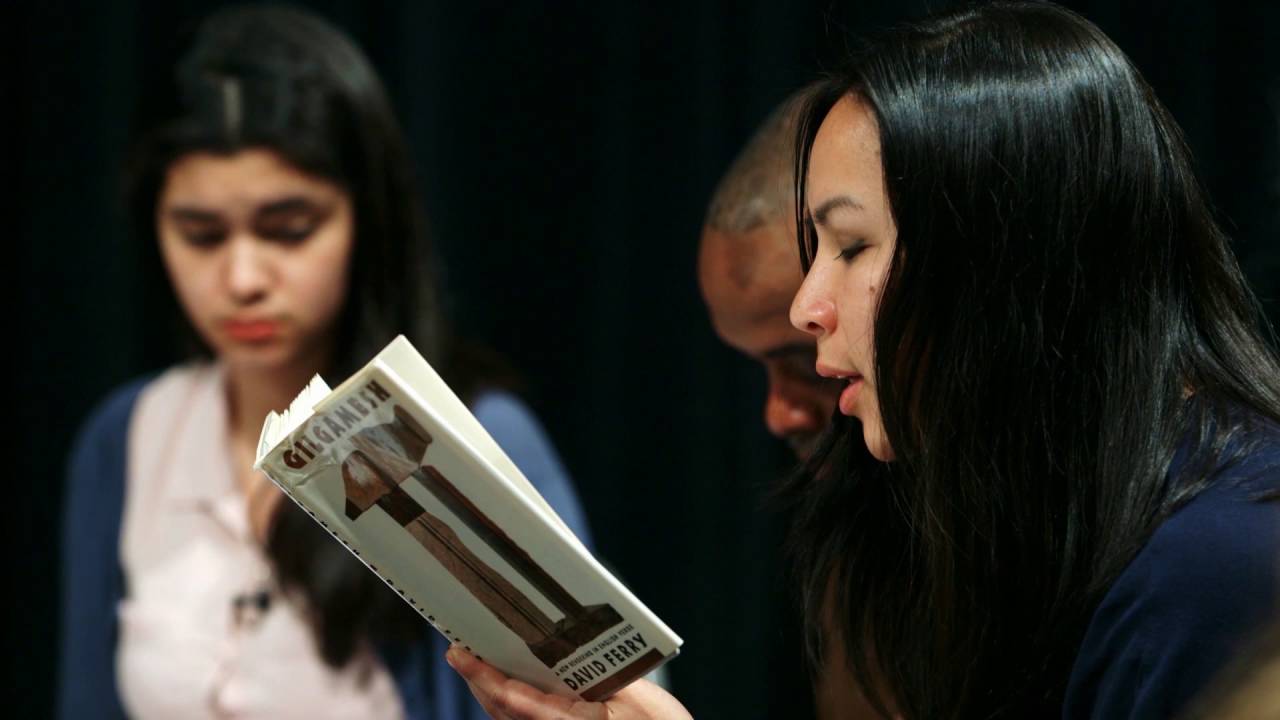TRANSLATION AND GREATNESS
The ancient epic poem Gilgamesh is great in scale (the fate of nations is involved), in antiquity (it is among the earliest literary artifacts), and in theme (it involves the limits of mortality and the idea of immortality). The discussion videos also propose that it is great in eloquence.
But he is talking about the poem in a specific English translation. If one way to define greatness is through the combination of subject and cadence, the idea of translation doesn’t at first seem to enter into the equation. But it’s actually vital to it.
What makes a translation great (this course takes David Ferry’s version of Gilgamesh as an example) includes excellence of ear: a vocal power equal to that of great poetry, an expressive vitality that survives the move from an original into a new language. These qualities also apply to moving—one might say translating—the world, or a memory of the world, into the language of poetry. Any poem, any work, in this way of thinking, translates experience into art.
Translations can seem slightly foreign in two ways: through difficulty dealing with the original, and through a deliberate effort to evoke the idioms and manners of the new language, and its culture of origin. In his influential essay “The Task of the Translator,” the critic Walter Benjamin suggests that the greatest translation does not make it seem that the poem was written in the new language, in the translator’s present time and place—but rather, expresses a yearning across the gulf between languages, and likely between cultural moments. A strong, great translation, arresting and alive, might implicitly convey the gap or tension between the culture and tongue of origin and the new work.
In Gilgamesh, the world is established with such authority that the supernatural takes on a certain precision—for example, Gilgamesh’s lineage, which contains two-thirds god. This feeling of hovering over the world, the original, permeates another great translation—Lydia Davis’ version of the French poet Pierre Reverdy’s “At the Edge of Time.” The opening—“The stems of the sun bent over the eye”—summons familiar things (sun, stems, eyes) while also bending them to suit the demands of translating human perception into a poetic line.
